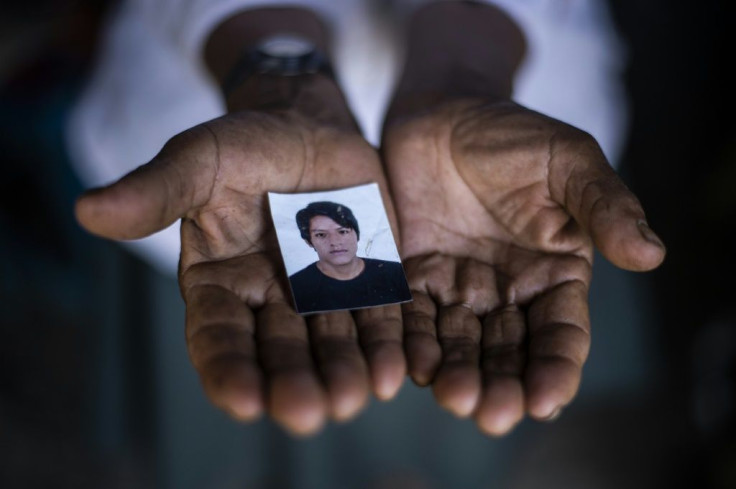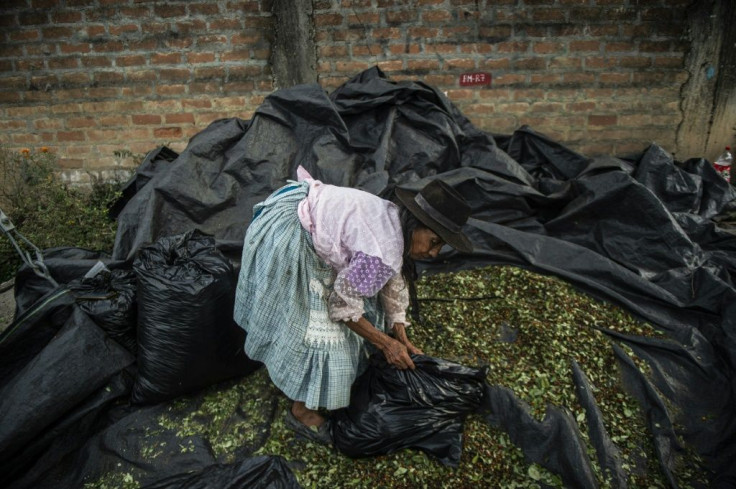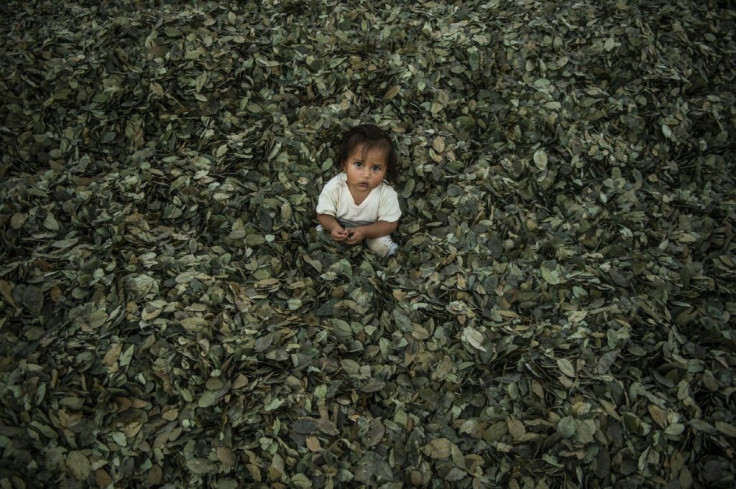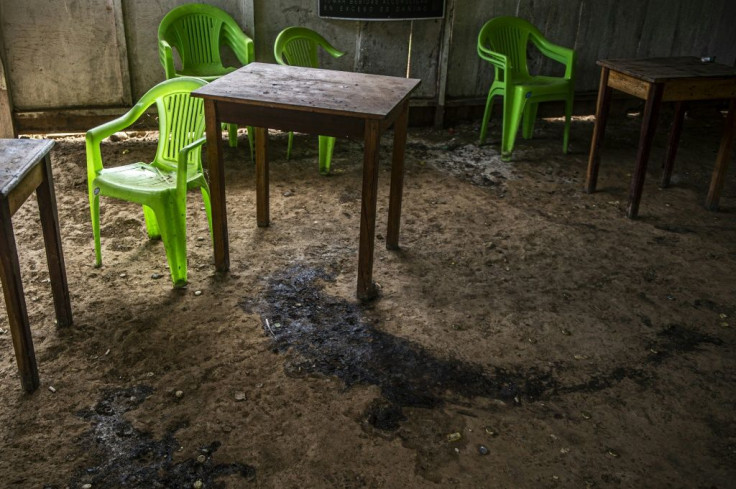Peru's Coca Farmers Caught Between Drug Gangs And Starvation
In an impoverished village in Peru's largest coca-growing region, Angelica Lapa mourns her 19-year-old son, killed four months ago by remnant Shining Path guerrillas who maintain a grip of terror over the forgotten region.
On May 23, a Sunday, armed men stormed the far-flung settlement of San Miguel del Ene -- population 300 -- and attacked two taverns, mowing down 16 people. Four were children.
Lapa's son Luis Fernando was among the victims.
"My son was innocent, humble. His death was very difficult for us," the 67-year-old said as she wept on the small farm where she ekes out a living growing mainly coca -- the leaf used to make cocaine.

The plant is much coveted by drug dealers the government says work in cahoots with Shining Path rebels -- a convergence of interests that places the community in constant peril.
This was not the first time Lapa -- her hands worn by many years of labor in the earth and sun -- had loved ones killed by Shining Path.
In the 1980s, at the height of Peru's war, she lost cousins, uncles and grandparents to the Maoist guerrillas fighting to overthrow the government.
After so much suffering, she told AFP, it was time for "the government to send the army to put pressure on those who have killed so many innocent people."

Shining Path is labelled a terrorist organization by Lima, the European Union and United States.
The government blamed the May 23 attack on a last active group of Shining Path guerrillas.
The attackers had left behind pamphlets warning the villagers, who live in extreme poverty in precarious wood and brick huts, not to vote for Keiko Fujimori -- then a candidate for presidential elections which have since been settled in favor of her rival Pedro Castillo.

After being militarily overwhelmed in the 1990s, the vast majority of Shining Path leaders were arrested, and the movement has dwindled to just about 200 remaining fighters led by renegade commander Victor Quispe Palomino or "Comrade Jose"
They are active in the remote, mountainous valley formed by the Apurimac, Ene and Mantaro rivers, though the Shining Path's original leaders do not recognize these fighters as members.
Shining Path founder Abimael Guzman died aged 86 at a maximum security prison on September 11, while serving a life sentence.
The sixteen victims of San Miguel del Ene are the latest on a long list of tens of thousands people killed in two decades of internal conflict from 1980 to 2000.
In the long-suffering VRAEM valley, so-called after the three rivers that form it, coca leaf cultivation is the only means of survival for many people in a place that does not even have sanitation or potable water.

The plant yields four times a year, making it more profitable than cacao, which is harvested only once a year, or lower-priced bananas.
"Economically, the leaf sustains us," Angelica's other son Roy, 35, told AFP.
Peru is the world's second-largest producer of coca, after Colombia. About half of Peru's 49,000 hectares of coca plantations are found in the VRAEM valley.
The plant is allowed to be grown for traditional use -- usually chewed or brewed in a tea and consumed as a stimulant or to counter altitude sickness.
But for the most part, the coca grown in the VRAEM is destined for the production of cocaine -- of which the United States is the world's largest consumer.
According to Peru's DEVIDA anti-drug commission, about 90 percent of the 120,000 tons of coca grown in the country every year ends up being used in illicit drugs -- only 12,000 tons are reserved for traditional consumption.
In 2019, before the global pandemic, one "arroba" (11.5 kilograms) of coca leaf sold to drug traffickers for up to 200 soles, or about $60.
Now, they get five or six times less, coca growers told AFP.
"The pandemic ruined us economically because the price fell," said Roy.
Dina Manrique, 45, explained the locals had nowhere else to turn.
"There is no other product for us. Sometimes we grow cacao and we can't make a sale. We were selling to Enaco (the state coca company), now we have to sell to other people. I don't know what they will do," she said.
cm/ljc/lbc/rsr/mlr/dw
© Copyright AFP 2024. All rights reserved.





















